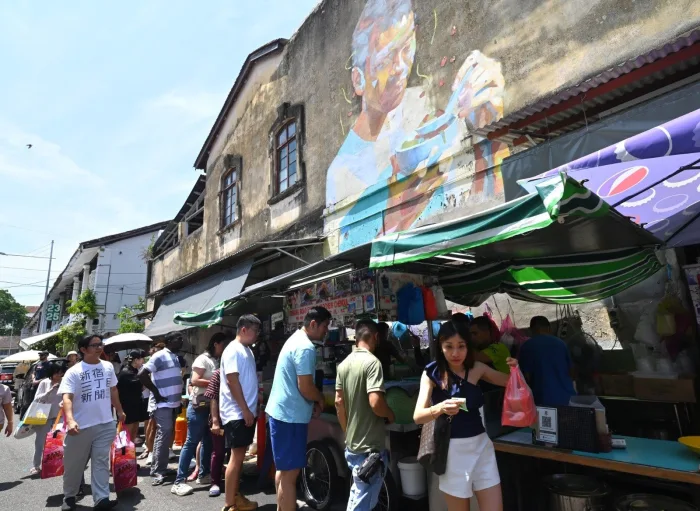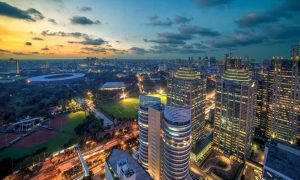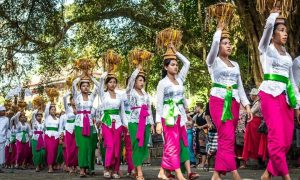With the economic rise of Southeast Asia on the international stage, Indonesia (Indonesia) is emerging as theimmigrants, potential countries for investment and long-term residence. In particular, from 2025 onwards, Indonesia has optimized multiple residence paths, whether for work, business, retirement or family reunification, and immigration thresholds have become more flexible and procedures more transparent.
If you are planning to move to Asia where the cost of living is moderate, the natural resources are abundant, and the systems are constantly improving, thenImmigration to IndonesiaMaybe it's that understated yet real option. This post will give you a systematic overview of the 2025Indonesia ImmigrationA full guide coveringMain types of visas, application process, long-term residence pathways and advantages of living benefitsWe help you to plan a one-step immigration path.
I. Why choose Indonesia as an immigration destination?
Indonesia is the largest economy in Southeast Asia, with a population of over 270 million, a large young labor market and a rapidly developing digital infrastructure. At the same time, its rich natural resources and unique cultural environment are attracting more and more expatriates to choose to settle or invest here.
Strengths Overview:
-
Low cost of living, slow and comfortable pace of life
-
Rich island resources, tourism and leisure life at the same time
-
Telecommuting and Freelance Friendliness in the Rise of the Digital Economy
-
Policies tend to be more open and the choice of visa types is diversified
II. Explanation of Major Visa Types in Indonesia in 2025
| Visa Type | population (esp. of a group of people) | specificities | Possibility of renewal/transfer of residence |
|---|---|---|---|
| Socio-Cultural Visa (B211A) | Family visits, short stays | Up to 180 days | Non-convertible long-term visas |
| Work Visa (KITAS) | Employed by Indonesian companies | Can work and pay taxes legally | Renewable and convertible to permanent residence |
| Investment Visa (Investor KITAS) | Business owner or shareholder | Lower investment thresholds | Renewable for 3-5 years with a stable pathway |
| Digital Nomad Visa (DNV) | Freelancers, teleworkers | No need to pay taxes in Indonesia | Initial 6-12 months, expected to be extended |
| Retirement Visa (Retirement Visa) | Retirees over 55 years of age | Possibility of permanent residence | Transferable to KITAP (permanent residence) |
| Family Reunification Visa (Spouse/Family KITAS) | Spouse, children, parents | Based on kinship | Long-term residence and application for permanent residence |
III. Application Process in Detail: From Visa to Residence Card
Although the application requirements for each visa type vary slightly, the overall process is roughly divided into the following 5 steps:
1. Preparation of information
Includes passport, photos, proof of assets, health insurance, no criminal record, etc. (This may increase or decrease depending on the type of visa).
2. Submit your application online
pass (a bill or inspection etc)Indonesia ImmigrationSubmit your e-Visa application on the Bureau's website or official partner platforms.

3. Visa approved
Usually the approval time is 7-15 working days and you can print the e-visa to enter Indonesia after the visa approval.
4. Entry for KITAS (Temporary Residence Permit)
Fingerprinting, registration of bio-information and receipt of KITAS card within Indonesia.
5. Transfer of Permanent Residence (KITAP)
After 5 years of residence, you can apply for a KITAP Permanent Residence Card, which does not need to be renewed frequently.
IV. Cost of living and actual residency benefits
Indonesia's relatively low cost of living is an important factor in attracting expatriate migrants. Take Jakarta and Bali as examples:
-
rents: Single apartments around $200-500/month, villas with pool around $700-1200/month
-
Food consumption: Local dining is extremely cheap, at $3-6 per person/meal
-
Medical services: Private hospitals are of good quality and expatriates are advised to take out international insurance.

Residence benefits include:
-
Children have access to international schools
-
Legally working or setting up a business
-
Possibility to open an Indonesian bank account
-
Long-term visa holders have access to medical and transportation services.
-
Retirement Visa with Tax Exemption and USCIS Green Pass Service
V. Sharing of real immigrant experiences
🎤 Ray (Entrepreneur) from Guangzhou::
"I set up a cross-border e-commerce company in Jakarta, and the investment visa threshold was lower than I expected, and the approval went smoothly. Indonesia has low staff costs, a free business atmosphere, and the government's support for foreign investment is increasing year by year."
🎤 Lillian (retired immigrant) from Taiwan::
"The pace in Bali is very slow, sunshine, yoga, coffee, music, every day is like a vacation. Retirement visas are renewed once a year, the process is simple, and the cost of living is so much lower than Japan."
VI. Future trends and considerations
-
Enhanced policy transparency: 2025 Indonesia is moving towards being an immigrant-friendly country, and the government is gradually streamlining the visa process and optimizing the efficiency of the vetting process.
-
Expatriate status tax planning needs to be careful: Some visa types involve tax obligations and it is advisable to consult a professional tax advisor in advance.
-
Visa agents are a mixed bag: Be sure to apply through formal channels and be wary of false promises by intermediaries.
Conclusion: Step by step towards your "Tropical Life Plan"
From remote work to retirement, small business investments to family reunions, Indonesia in 2025 offers unprecedented migration possibilities. If you aspire to a sunny, low-stress, high-freedom lifestyle and want a stable legal status with policy support, Indonesia is a realistic option to consider. Life doesn't have to be up north, it can also be down south, to the islands, to Indonesia.






